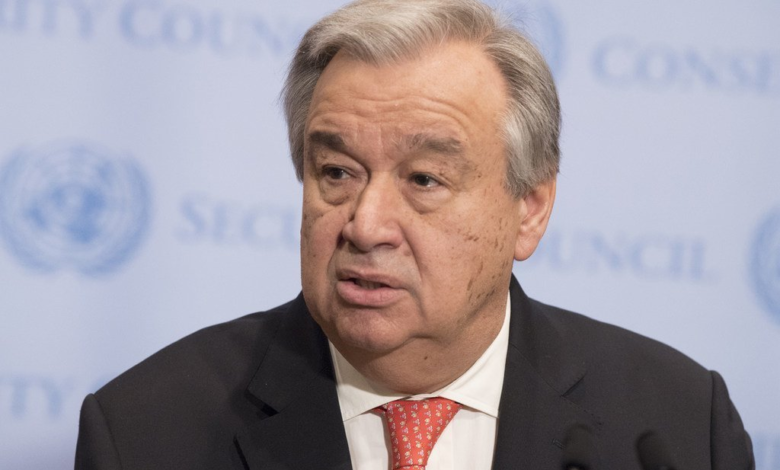UN Wants Gov’ts To End Internal Displacement Crisis In New Action Agenda
United Nations calls for real progress towards ending the internal displacement crisis worldwide.

The United Nations Secretary-General, Antonio Guterres, called for more efforts to end the global displacement crisis as the number of people uprooted from their homes due to conflicts and climate emergencies is rising.
During the launch of his Action Agenda on Internal Displacement on Friday, June 24, Guterres said the duty to end displacement lies first and foremost with governments.
“However, we all have a responsibility to act,” the UN chief said in a video message.
The Action Agenda builds on a 2021 report by a high-level panel convened by the Secretary-General to identify concrete recommendations for solving the internal displacement crisis.
In 2021, conflicts displaced about 59.1 million people within their countries, or four million more than in 2020, the International Organisation for Migration (IOM) reported in May, citing the latest Global Report on Internal Displacement (GRID).
The displacement resulted from conflict, climate change, violence, and human rights abuses. The displaced were particularly from African countries accustomed to years of armed conflicts.
The report revealed that the figure represented a sharp increase of almost 7 million people in just three months of the Russia-Ukraine war.
“In just three months, the war in Ukraine drove 13 million people out of their homes and communities, nearly two-thirds of whom remain in Ukraine,” Guterres said.
His Action Agenda calls for the UN and partners to make fundamental changes to how they work together if real progress is to be achieved.
The plan highlights 31 commitments by the UN system to better resolve, prevent and address internal displacement. It also calls for action from countries, international financial institutions, the private sector, and others.
Some of the commitments include stepping up efforts to ensure greater inclusion of internally displaced persons (IDPs) and local community members in decision-making on solutions.
The UN also will address displacement more systematically under its work on climate change and will work with national and local authorities to ensure displacement is part of disaster risk reduction policies and plans.
The Action Agenda’s three key goals are to help IDPs find durable solutions, better prevent future displacement crises, and ensure more robust protection and assistance for those currently facing displacement.
‘To ease suffering.’
The three goals, the plan explains, are interlinked because “no solution is sustainable if another crisis is looming.”
It says, “no assistance will be sufficient if underlying drivers remain unresolved, and prevention cannot succeed if past crises have not been addressed.”
“The plight of internally displaced persons is more than a humanitarian issue,” the Secretary-General added.
“It takes an integrated approach – combining development, peacebuilding, human rights, climate action and disaster risk reduction efforts.”
He called on partners to support the UN in driving change, saying, “together, we can ease human suffering and deliver a better future for internally displaced persons around the world.”
Support Our Journalism
There are millions of ordinary people affected by conflict in Africa whose stories are missing in the mainstream media. HumAngle is determined to tell those challenging and under-reported stories, hoping that the people impacted by these conflicts will find the safety and security they deserve.
To ensure that we continue to provide public service coverage, we have a small favour to ask you. We want you to be part of our journalistic endeavour by contributing a token to us.
Your donation will further promote a robust, free, and independent media.
Donate HereStay Closer To The Stories That Matter




